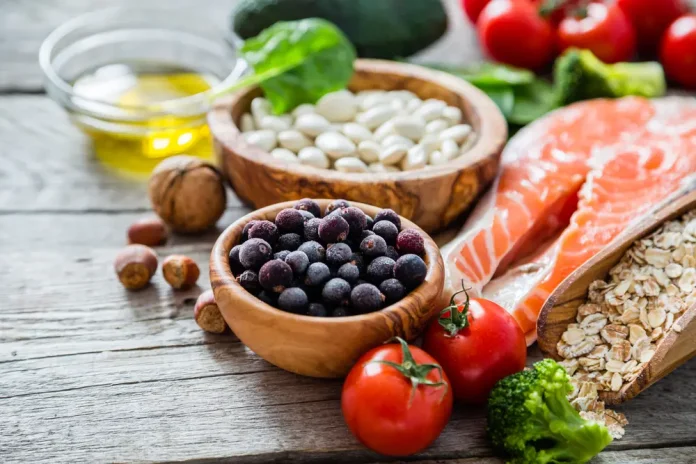Children are especially prone to catching colds, coughs, and flu because they’re around so many other kids all day. That’s why parents are always looking for ways to boost their kids’ immune systems so that they don’t get sick as often.
Your first line of defense in boosting the immune system is through a proper diet. You want to eat a lot of fruits and vegetables, as that boosts the body’s antioxidant properties in order to increase immunity. Here are some of the best foods your child can eat in order to boost their immune system.
1. Berries
Berries are packed with beneficial antioxidants and most kids love them, so they’re an easy way to keep the whole family healthy. Put some blueberries on morning cereal before school, add them to breakfast smoothies or pack them as a refreshing afternoon snack. Stock up on frozen berries or grow your own so you can enjoy them fresh and in-season.
Berries keep the immune system fighting due to their antioxidants which fight against oxidative stress. But don’t limit yourself to blueberries, explore raspberries, cranberries, blackberries, strawberries, and cherries too.
2. Citrus fruits
High in vitamin C, citrus fruits are essential for a strong immune system. A lot of kids like to eat oranges and tangerines and will typically drink orange juice with breakfast too, so it’s pretty easy to incorporate citrus fruit into the diet.
Citrus fruit is a fantastic addition to breakfast meals and they make for an easy and hygienic snack because they come pre-packaged by Mother Nature.
3. Green leafy vegetables
If there’s one menu item that parents struggle to convince their kids to eat, it’s green veggies! But, it’s important for children to consume green leafy vegetables daily because they are packed with essential vitamins and carotenoids that help to build a strong immune system.
For instance, spinach and fenugreek leaves contain important antioxidants that help to build up the immune system.
4. Root vegetables
Root vegetables like carrots, beets, and sweet potatoes work specific to the respiratory system. Squash or pumpkin are loaded with beneficial antioxidants including vitamins A and C as well as magnesium and manganese.
Root vegetables can be enjoyed in hearty winter stews, oven roasts, mash, and casseroles, all of which are delicious and nutritious meals that can be enjoyed all year round.
5. Mushrooms
There are many different mushroom types, such as lion’s mane and reishi, that help to boost immunity–especially apoptogenic mushrooms. They have a special compound known as beta-glucans, which are known to stimulate the immune system.
There are so many different ways to enjoy mushrooms, from adding them to pizzas and pasta, to stuffed mushrooms and creamy mushroom sauce.
6. Nuts and seeds
Nuts and seeds are naturally high in vitamin E which is known to help build immunity. You can enjoy them roasted, crumbed, salted, or even candied. Your options include seeds like sunflower seeds, flax seeds, and pumpkin seeds, as well as nuts like cashews, almonds, walnuts, and peanuts.
7. Yogurt
Yogurt is full of good gut bacteria called probiotics which help to prevent bad bacteria from colonizing the stomach. The best way to cultivate this good gut bacteria is to consume food that is high in fiber as well as good bacteria, such as yogurt and fermented foods like pickles, kimchi, and sauerkraut. You can work these into delicious meals during lunch and dinner.
What About Supplements?
Despite the parents’ best efforts, most kids don’t eat enough fruits and vegetables to really give their immune systems a boost, which is where supplements come in. For instance, vitamin C and echinacea are two very effective supplements that can be taken daily throughout the late fall and winter months, to help prevent illness.
Echinacea can be found at natural food stores and dosing information is often indicated on the packaging for ease of use. Zinc is another essential mineral that makes it easier to recover from colds and flu relatively quickly. It can be found in liquid and capsule form in health food stores as well.
Vitamin C helps the immune system to create new cells and this is what the body needs as we encounter more viruses and illnesses. Vitamin C can be found in cherries, peppers, broccoli, oranges, lemons, limes, kiwi, kale, and Brussel sprouts.
Vitamin A may increase the immune system’s response to viruses and it can be found in papayas, carrots, broccoli, spinach, and kale.
According to former CDC chief Dr. Tom Friedman, Vitamin D3 is an essential vitamin that can specifically reduce the risk of coronavirus and respiratory disease. The best way to get vitamin D is by playing outside in the sunshine, and 10 to 15 minutes in the sunshine without sunscreen is often enough to get your daily requirement.
To further boost immunity, children should limit sugar intake and junk food, especially leading up to the winter months, as sugar can really lower one’s immune system. The artificial colors and chemicals you’ll find in junk food can also harm the immune system, so it’s a good idea to keep treats to a minimum during the winter months.
A healthy diet is key to a healthy life and a strong body. Eating fruits and vegetables every day is essential to boosting your child’s immune systems to ensure they are able to deal with the demands of their growing bodies.
